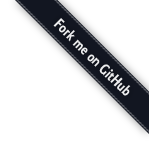Language
6The way we adress the user must also be concistent. Feeling familiar can help the user make quicker actions, even in unfamiliar modules. By keeping common terms we also save translation resources.
How we use words
6.1These are some of the thinking applied to words and writing. When in doubt, check the material design writing guidelines
| Do | Don't | Distinction |
|---|---|---|
| Add | New | Add sounds more positive. |
| Search | Find | We can't promise the user we will find something. |
| Manage | Handle | Manage sounds more positive. |
| Edit | Modify | Edit is more commonly used. |
| Refresh | Update | Refresh is more commonly used. |
| OK | Agree | Use OK if needed but try to use something that describes the action better. |
| Delete/ Remove/ Hide | Clear | Use delete for permanent actions, remove for non permanent actions and hide to hide for just that user. |
| Select | Choose | Select sounds more positive, choose sounds limiting and demanding. |
| Send/Apply/Save | Submit | Use send for actions that need further actions (a request for example), Use save for saving new or changed parameters, apply can be used where appropriate. |
| Show | Display/view | Show sounds more positive and less formal. |
| Cancel/Dismiss | - | Use cancel for cancelling actions. Use dismiss for removing information where no action from the user is required (like modals without actions). |
Translations
6.2To support all manner of languages we use angular-translate. It allows us to translate in templates using { {'Key'|translate} } or $translate.instant('Key') when translating from JavaScript. Keys used in this styleguide should be referenced in the styleguide_translation_keys.html file in the project root. The format of these are important for us to be able to keep track of what keys are in use.
Jalaali To show dates in the Jalaali format use this filter: { {DateObj | persianDate:'fullDate'} }.

